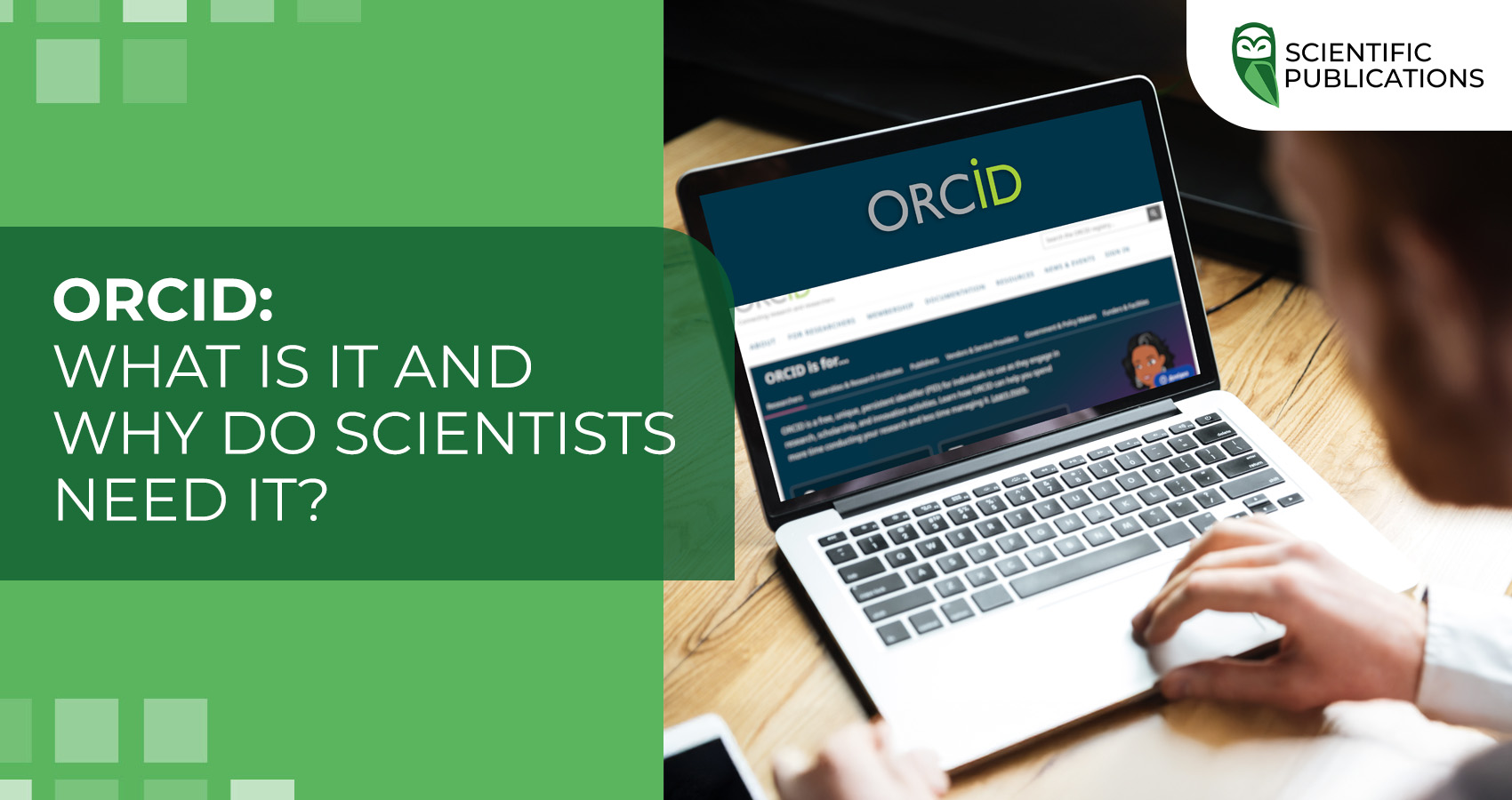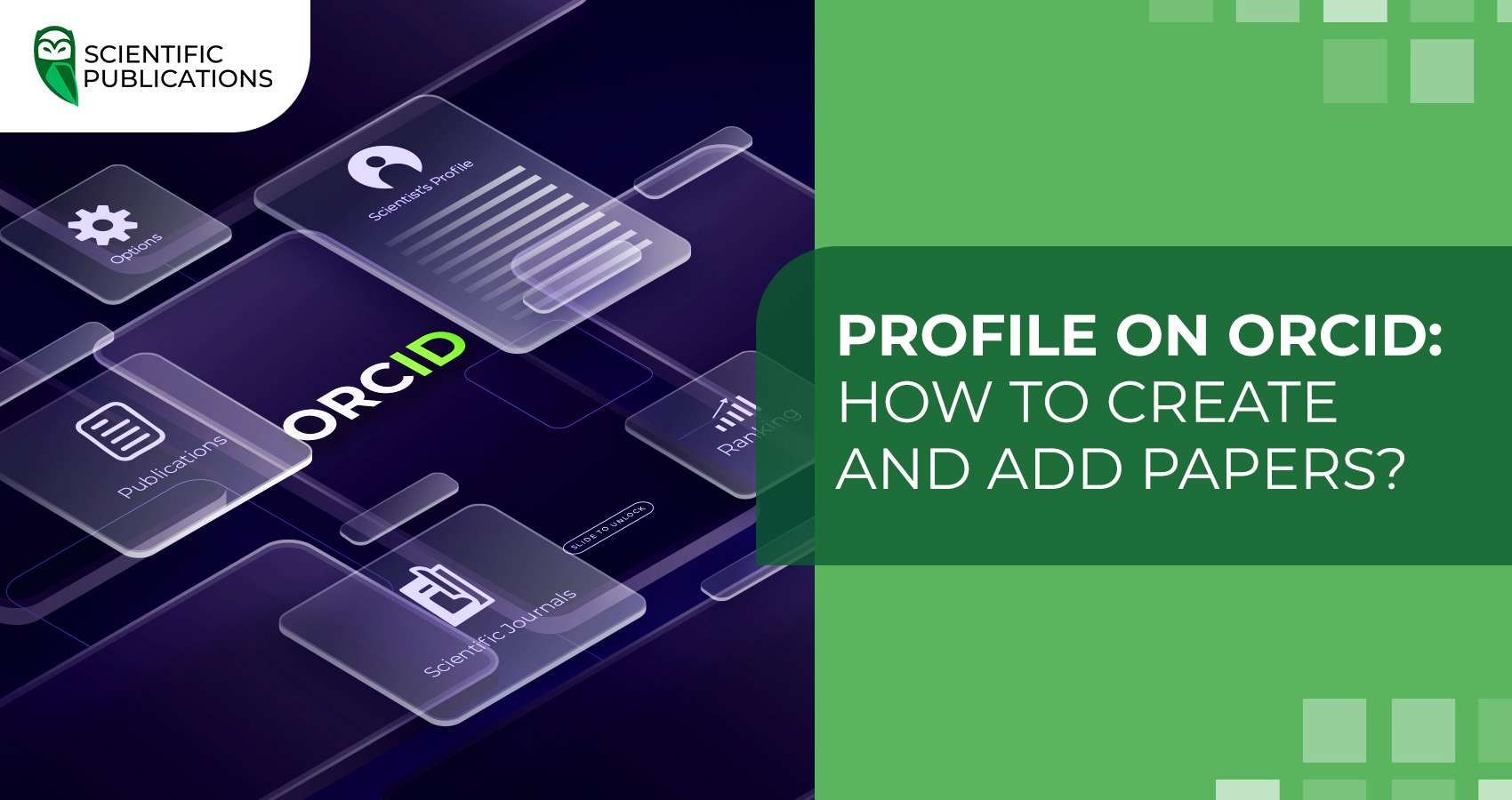When writing a research paper, authors look for sources of information and inspiration in the works of other researchers. In many publications, you can find information such as the ORCID identifier in the author's information. Today, we will look at what it is and why scientists need it.

What is ORCID?
ORCID (Open Researcher and Contributor ID) is a unique identifier that is designed to accurately recognise researchers in the global research environment. It is used when participating in research projects, applying for grants, publishing research results and other forms of research and innovation. ORCID actively cooperates with publishers, universities, research institutions, and other organisations around the world.
ORCID allows researchers to collect information about their professional activities, research interests and publications in one place. One of its advantages is the ability to import and export scientometric data from other scientific platforms, which greatly simplifies the accounting and dissemination of research results.
ORCID confidentiality and transparency
The ORCID identifier does not contain any personal information. It is specially designed to be used in cases where disclosure of personal data is undesirable or unacceptable. Since ORCID serves as an identifier throughout the researcher's career, it does not include variable data such as country, institution, or field of study.
The purpose of ORCID is to provide a reliable and transparent link between researchers, their scientific achievements and affiliations by providing a unique, permanent identifier. This tool is widely used when participating in scientific, research and innovation processes.
ORCID strives to ensure that every participant in the research and publication process is uniquely identified and linked to their work, regardless of discipline, time or geographic location. ORCID is a key element of the global digital infrastructure that facilitates the effective exchange of scientific information.
ORCID member organisations
ORCID is a not-for-profit organisation that operates with the support of a global community of member organisations, including research institutions, publishers, funders, professional associations and other participants in the scientific ecosystem.
The organisation is discipline- and country-neutral, but actively integrates with various identification systems. Among its partners are Clarivate Analytics, Elsevier, CrossRef, Springer Nature, Cambridge University Press, Oxford University Press, and other influential participants in the scientific publishing space. Millions of identifiers are registered in the ORCID system, covering leading research institutions, universities and libraries around the world.
How many member organisations does ORCID have?
- 1427 research communities
- 958 research institutes
- 90 publishers
- 55 associations
- 53 sponsoring organisations, etc.
Is there a fee for ORCID?
ORCID is a free service that can be accessed after a simple registration. After creating an account, users can share information, link their profile to other systems, and find fellow researchers.
What information does ORCID contain?
- First name.
- Surname.
- Email address.
- Name of the organisation where the researcher works.
- Information about research activities.
What does ORCID look like?
ORCID is a unique researcher identifier that has a URL format of 16 characters divided into four blocks.
Some people have questions about the composition of the number, as the last character can be more than just a number. This is a checksum calculated according to the international standard ISO/IEC 7064:2003, MOD 11-2. It can have a value from 0 to 9 or ‘X’ (capital letter), which means 10.
Why do scientists need ORCID?
ORCID helps to solve the problem of identical names and surnames of authors, as well as incorrect spelling or translation of this data, which helps to accurately determine the scientific contribution of a particular researcher. All publications belonging to the author are stored correctly and unambiguously assigned to him or her.
ORCID also allows you to combine different scientific identifiers, such as Scopus Author ID or Web of Science Researcher ID, and ensures correct citation. This helps researchers submit their work to prestigious international journals, participate in international rankings, and apply for grant funding.
Do you still have any questions? Don't hesitate to contact Scientific Publications! Our specialists will help you, as they have many years of experience in publishing processes. Fill out the form below or submit an application online, and we will contact you as soon as possible. Let's reach new heights together!
Follow our blog and subscribe to our social media channels so you don't miss out on interesting, relevant and useful information!





